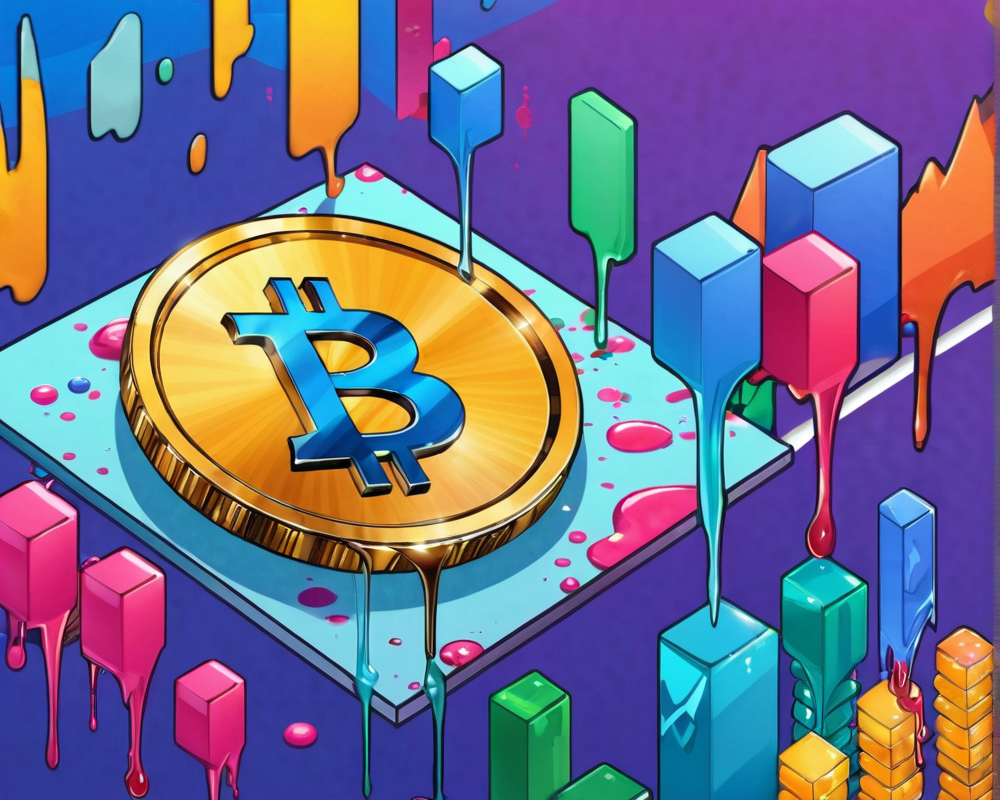A Crypto Winter Like No Other
The year 2022 was not just another elaborate chapter in the crypto saga; it was like throwing a winter festival in Antarctica without any winter gear. The extended market price drawdown tested the crypto industry’s fortitude, leaving many to wonder if their big dreams of crypto riches were just pillow-fort fantasies. Regulators, sensing a disturbance in the digital force, swooped in like hawks on a stakeout. Major players like Coinbase and Binance felt the chilling winds of scrutiny.
Operation Choke Point 2.0: Myth or Reality?
The rumor mill spins tales of a grand conspiracy known as Operation Choke Point 2.0, which critics suggest is the U.S. government’s attempt to “un-bank” crypto ventures. It’s as if they believe Uncle Sam has donned a superhero cape to wreak havoc on digital finance. Nic Carter from Castle Island Ventures asserts that this high-stakes game involves multiple government agencies working together to make banking life as difficult as possible for crypto firms.
The Historical Precedent
Drawing comparisons to previous clampdowns, like those on firearms companies during the Obama and Trump administrations, Carter asserts the government is honing its strategies to apply pressure. But could it be that the crypto sector is overestimating its perceived threat to other currencies, particularly the dollar?
The Dollar Drama: Is Crypto Really a Threat?
Mati Greenspan from Quantum Economics claims that cryptocurrencies appear to rattle traditional financial systems, but let’s be honest: the U.S. dollar has survived wars, economic collapses, and even the 1970s fashion trends. Crypto may be a minor player in the grand theatre of international trade, overshadowed by players like China and Russia.
Expert Opinions
According to experts at the International Monetary Fund, crypto isn’t emerging as a major risk to the global economy just yet. They argue that the dollar remains firmly atop its throne as the world’s currency of choice.
The Perfect Storm Brewing
Yet, not everyone is so optimistic. John Deaton, a legal expert and supporter of Ripple, warns that factors such as the de-dollarization activities from countries like China and potential oil trades outside of the USD could create a climate of anxiety in Washington. The government’s money-printing spree compounding inflation worries poses problems that make Bitcoin look like a safety net for investors seeking alternatives.
The Crypto Industry’s Fault? Potential Self-Inflicted Wounds
Amid all this tension, Deaton notes that the crypto industry itself hasn’t exactly helped its own cause, often engaging in activities that make them look bad—like a magician who reveals his own secrets.
CFTC’s Moves Against Binance: A Regulatory Tactics?
When the CFTC came knocking at Binance’s door, many speculated if it was a surprise visit or a premeditated regulatory attack aimed to deliver a fatal blow. While it’s easy to whip up drama, Deaton believes such claims may be over the top.
The Bigger Picture
With reports of coordinated actions against crypto firms, whispers of collusion ripple through the community. Yet, caution is advised; hyperbole reigns supreme in the crypto news echo chamber, and it’s often challenging to separate speculation from reality.
Global Perspectives on U.S. Regulation
From across the pond, U.S. regulatory actions seem baffling. Experts like Syren Johnstone criticize the SEC’s heavy-handed approach, likening it to putting a square peg in a round hole when it comes to fostering innovation. Countries around the globe look to the U.S. as a cautionary tale of what not to do.
A Long Road Ahead
The path forward suggests a need for more collaborative, innovation-friendly regulatory frameworks. Countries must navigate these waters with care, as one man’s commodity is another’s currency, and one regulation could cripple a budding industry.
Cooling Down the Hype: A Call for Rational Discourse
If the crypto community continues the language of victimhood, it may end up eating its own tail instead of paving the path for adoption. While some may see the hand of government squeeze tighter, others argue it’s more of a balancing act to ensure standards without stifling the spirit of innovation.
The Economic Report: A Reflection
Disappointment echoed throughout the community when the latest Biden administration report on crypto was released. Many felt it missed a crucial opportunity to recognize the potential of digital assets while instead framing them as contrary to economic stability.
Ultimately, regulators face an uphill battle. While they have the right to tackle the bad apples, overreach may kill the golden goose of crypto innovation. The balance between prevention of fraud and promotion of entrepreneurship remains delicate, but it is certainly achievable—with a little patience and dialogue.




